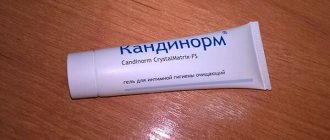Inflammation of the female reproductive system is the most common reason for visiting a gynecologist. The inflammatory process is quite often asymptomatic. In this regard, many patients come to see a doctor after complications have developed. The most dangerous complications of inflammation are a high risk of ectopic pregnancy, menstrual irregularities, infertility, and the development of precancerous conditions.
Treatment of inflammatory gynecological diseases
Treatment of inflammatory gynecological diseases is carried out with the help of medications, physiotherapy and surgery. Competent treatment allows a woman to return to good health, pleasure from intimate relationships, and the opportunity to have children.
Symptoms of female inflammatory diseases
Symptoms depend on the organ affected. The following manifestations are considered common:
- redness, swelling, itching of the mucous membrane of the vulva and vagina;
- pain in the lower abdomen, in the area of the external genitalia, in the pelvic area, sometimes radiating to the lower back;
- discomfort and pain during sexual intercourse, decreased libido;
- pathological discharge from the vagina - mucous or mucopurulent, cloudy, cheesy, with gas bubbles, with an unpleasant odor and a yellowish tint;
- menstrual irregularities (scanty, heavy, painful, irregular periods);
- painful and frequent urination;
- increased body temperature, general weakness, digestive disorders;
- infertility.
All these symptoms are considered good reasons to consult a gynecologist.
Drugs used in gynecology
28.02.2018
Clotrimazole is an antifungal drug from the group of imidazole derivatives for external and local use. Prescribed for fungal infections of the mucous membranes and skin (candidiasis, trichophytosis, microsporia, epidermophytosis, dermatophytosis, dermatomycosis, etc.), mycoses complicated by secondary pyoderma, candidal vulvitis , vulvovaginitis, balanitis, trichomoniasis.
The drug is used in the form of ointment (cream), solution and intravaginal tablets. The cream or solution is applied to the affected areas in a thin layer 2-3 times a day and rubbed in. The course is up to 4 weeks or more. To treat urogenital candidiasis, the vagina at night , and the vulva and skin are lubricated with 1% cream.
The drug is contraindicated during pregnancy , during the menstrual period, and in case of hypersensitivity. It should be used with caution during lactation.
Side effects include itching, urticaria, burning, swelling , irritation and peeling of the skin vaginal discharge , headache, gastralgia, frequent urination , intercurrent cystitis .
Bromocriptine is a drug indicated for menstrual irregularities, premenstrual syndrome, and infertility .
Bromocriptine is prescribed in a maximum daily dose of 100 mg (with meals).
For menstrual irregularities and female infertility - 1.25 mg 2-3 times a day (if necessary, the dose can be gradually increased to 5-7.5 mg per day). Treatment is continued until the menstrual cycle normalizes and/or ovulation is restored. For premenstrual syndrome, medication is started on the 14th day of the cycle with 1.25 mg per day. Gradually increase the dose by 1.25 mg to 5 mg per day (until the onset of menstruation ).
The drug is contraindicated in cases of gestosis, arterial hypertension in the postpartum period, diseases of the cardiovascular system, a history of heart
Side effects include nausea , vomiting, headache, dizziness , myocardial infarction, stroke, drowsiness, constipation , psychomotor agitation, hallucinations, psychosis, dyskinesia, decreased visual , dry mouth , nasal congestion , skin rash, cramps in the calf muscles. With prolonged use, Raynaud's syndrome may occur.
Gonadotropin is a hormone secreted by the placenta during pregnancy . It is used in women for infertility , habitual or threatened miscarriage, dysfunctional uterine bleeding during childbearing years, in men for delayed puberty, cryptorchidism (undescended testicle into the scrotum), and infertility .
For ovulation induction and when using artificial insemination methods, women are prescribed 5000-10000 IU a day after the last administration of menotropins or urofollitropin, or 5-9 days after the last administration of clomiphene; in case of corpus luteum deficiency - 1500 IU every second day, starting from the day of ovulation until the day of expected menstruation or confirmation of pregnancy (in the latter case, repeated use is possible up to 10 weeks of pregnancy ).
For men - for induction of spermatogenesis in case of infertility for 6 months or more; if the number of sperm in the ejaculate remains insufficient (less than 5 million/ml), then treatment is supplemented with menotropins or urofollitropin and continued for a year. Cryptorchidism in prepubertal age - 1000-5000 IU 2-3 times a week until the desired effect is obtained, but not more than 10 doses.
The drug is contraindicated in cases of hypertrophy or tumor of the pituitary gland, hormone-dependent tumor or inflammatory disease of the genital organs , heart and kidney failure, bronchial asthma , epilepsy, migraine, ovarian in women, undiagnosed dysfunctional uterine bleeding, uterine , ovarian cyst or hypertrophy, thrombophlebitis in the acute stage, prostate cancer , premature puberty in men. It should be taken with caution in case of polycystic ovary , under the age of 4 years. During pregnancy , the possibility of adverse effects on the fetus must be taken into account.
Side effects in women include ovarian , formation of ovarian cysts, ovarian , multiple pregnancies , peripheral edema , headache, anxiety, irritability, weakness, fatigue, depression rash , angioedema , dyspnea, breast , pain in site of drug administration. In men - premature puberty, enlargement of the testicles in the inguinal canal, making it difficult for them to descend, degeneration of the gonads, atrophy of the seminiferous tubules.
Clomiphene is a synthetic ovulation stimulator in women with infertility caused by secondary ovarian , mainly caused by functional hypothalamic-pituitary disorders. The drug is also indicated for failure of the menstrual cycle after the use of contraceptives, secondary amenorrhea (lack of menstruation ), Stein-Leventhal syndrome (polycystic ovary ), galactorrhea (discharge from the nipple), oligospermia (decreased volume of ejaculate ejected during ejaculation).
The dosage of clomiphene is determined individually and depends on the characteristics of the disease. For regular menstruation, use begins on the 5th day of the cycle. First course: 50 mg 1 time per day after meals for 5 days (from the 5th to the 9th day of the menstrual cycle). In this case, it is necessary to monitor the ovarian using clinical and laboratory studies. Ovulation usually occurs between the 11th and 15th day of the cycle. If this does not happen, a second course is prescribed: 100 mg once a day for 5 days. If the second course does not lead to ovulation, it is repeated. If there is no effect after a three-month break, you can repeat the three-month course in the same dosages. For amenorrhea caused by the use of contraceptives, usually the first course (50 mg per day for 5 days) is effective. For oligospermia, clomiphene is prescribed 50 mg per day for 6 weeks.
Published in Medicines for diseases of the genitourinary system, Directory of medicines Premium Clinic
Causes of development of inflammatory gynecological diseases in women
Most often, the inflammatory process develops against the background of tissue infection by pathogenic or opportunistic bacteria. The following reasons increase the likelihood of developing female inflammation:
- infection with sexually transmitted infections. Occurs during unprotected sexual contact (chlamydia, trichomoniasis, ureaplasmosis, syphilis, gonorrhea, candidiasis, human papillomavirus, etc.);
- uncontrolled use of antibacterial drugs, disrupting the normal microflora of the genital organs;
- hypothermia, failure to comply with personal hygiene rules, weakened immunity;
- hormonal and metabolic disorders in the body;
- difficult childbirth, abortion, surgical interventions in the genital area;
- controlling the urge to urinate and defecate;
- heavy physical exertion, prolapse of the internal genital organs.
Accurate determination of the cause of the development of the inflammatory process allows you to select effective treatment.
Anti-inflammatory drugs in gynecology || List of tablets in gynecology
Anti-inflammatory drugs are a group of medications whose action is aimed at relieving inflammatory processes with the concomitant elimination of pain, swelling and other characteristic symptoms. Efficiency lies in the ability to suppress the formation and transformation of arachidonic acids, which provoke the development of inflammation.
Anti-inflammatory drugs, according to the international classification, are divided into the following pharmacological groups:
- Antibiotics.
- Glucocorticosteroid drugs, which are natural or synthetic hormones of the adrenal cortex (the drugs are indicated exclusively for the treatment of hormonal diseases and are not used in the gynecological field).
- Antimycotics.
- Non-steroidal anti-inflammatory drugs.
- Biostimulants.
Anti-inflammatory drugs used in the gynecological field are available in the following forms:
- Injections.
- Rectal suppositories.
- Vaginal suppositories.
- Pills.
The most popular are rectal and vaginal suppositories. The choice of a specific drug, its form and dosage are determined by a specialist individually in each specific case. This takes into account factors such as the age and general health of the patient, the presence or absence of concomitant pathologies, the type of disease, its severity and course.
The following types of anti-inflammatory drugs are used for treatment:
- Suspensions.
- Nonsteroidal drugs.
- Antibiotics.
Suspensions. Rectal and vaginal suppositories are one of the most popular anti-inflammatory drugs used in gynecology. This is due to their effectiveness, rapid impact and minimum side effects.
Most often, suspensions are prescribed for gynecological diseases of a bacterial or fungal nature, inflammatory processes in the uterus, appendages, ovaries and vagina.
The following drugs are considered to be the most popular and effective in the treatment of female ailments:
- Diclofenac.
- Voltaren.
- Movalis.
- Flamax.
- Hexicon.
- Ginalgin.
- Klion-D.
- Metronidazole.
- Mikozhinax.
- Terzhinan.
Possible side effects of suspensions include:
- Flatulence.
- Nausea.
- Itching and burning sensation.
- Constipation.
The use of rectal suppositories is contraindicated for ulcerative lesions of the gastrointestinal tract, cracks, inflammation and bleeding of the anus.
Nonsteroidal drugs have analgesic, anti-inflammatory, capillary protective and antiplatelet effects. In gynecology, these drugs are used for painful menstruation, inflammation of the genital organs, urogenital infections, adhesive lesions of the uterus and endometriosis.
Drugs of this pharmacological group are used as an anesthetic when taking a biopsy, treating uterine pathologies and installing or removing an intrauterine device.
In most cases, gynecologists prescribe the following non-steroidal drugs to patients:
- Indomethacin.
- Meloxicam.
- Diclofenac,
- Celecoxib;
- Piroxicam.
- Nurofen.
- Rapten.
- Ketoprofen;
- Rapid;
- Novigan.
The use of non-steroidal drugs is contraindicated for peptic ulcers and other pathologies of the gastrointestinal tract. Disturbances in the functioning of the digestive system are among the most common side effects caused by these drugs.
Antibiotics in the gynecological field are used to treat various types of inflammatory processes, colpitis, and erosive lesions. The drugs are prescribed after gynecological surgical interventions. Antibiotics are also prescribed for diagnoses such as gonorrhea, endometritis, tuberculosis of the uterine appendages and perimetritis.
The most common ones include:
- Biomycin.
- Penicillin.
- Cephalosporin.
- Streptomycin.
Antibiotic therapy has a lot of contraindications and side effects; it is used exclusively as prescribed by a doctor and is carried out under his strict supervision.
To achieve favorable results of the therapeutic process, the choice of drug, its dosage and duration of administration should be made only by a doctor.
Indications for use
Anti-inflammatory drugs are prescribed to patients with diseases:
- Colpitis.
- Candidiasis.
- Cervical erosion.
- Inflammation of the appendages and fallopian tubes.
- Vaginal dysbiosis.
- Acute infectious lesions of the female genitourinary system.
- Bacterial vaginosis.
- Dysmenorrhea.
- Gynecological diseases of a viral or fungal nature.
- Chronic diseases of the pelvic organs.
- Sexual function disorders.
- Reproductive dysfunction.
- Endometriosis.
- Algodismenorrhea.
- Inflammation of the ovaries.
- Cervical dysplasia.
Indications for prescribing anti-inflammatory medications are:
- Menstrual irregularities.
- Painful menstruation.
- Excessive vaginal dryness.
- Previous surgical interventions in the gynecological field.
- Pain in the lower abdomen.
In modern medicine there are a large number of different techniques used to combat gynecological diseases. Drug therapy based on the use of anti-inflammatory drugs is widely popular due to its effectiveness and high effectiveness. The advantages of these funds include the following factors:
- Elimination of pain syndrome accompanying a number of gynecological diseases.
- High degree of effectiveness in terms of eliminating painful symptoms.
- Removing and stopping the development of the inflammatory process.
Despite the widespread use of anti-inflammatory drugs in the gynecological field, in some cases their use is strictly not recommended, as this can cause serious damage to health. The main contraindications are:
- Pregnancy.
- Tendency to allergic reactions.
- Individual intolerance to certain drugs or their individual components.
- Lactation period.
- Kidney failure.
- Liver pathologies.
- Hemorrhagic stroke.
- Ulcerative lesions of the stomach or duodenum.
- The patient's age is under 16 years.
- Chronic diseases of the cardiovascular system.
- Bronchial asthma.
- Mental disorders.
- Parkinson's disease.
- Epilepsy.
- Thrombocytopenia.
- Hemorrhagic diathesis.
- Arterial hypertension.
Possible side effects
Today, drugs are characterized by minimal toxic effects, and if the treatment process is carried out under medical supervision, then the danger to the patient’s health is very insignificant. But side effects are still possible. The most common may be:
- Increased risk of developing intestinal bleeding.
- Nausea.
- Attacks of vomiting.
- Dizziness.
- Headache.
- Painful sensations in the abdominal area.
- Allergic skin rashes.
- Diarrhea.
- Disturbances in the functioning of the gastrointestinal tract.
To avoid possible side effects and to prevent health problems, the drug, its dosage and the duration of the therapeutic course must be prescribed by a qualified gynecologist. Following medical recommendations will help minimize risks.
Inflammatory diseases in gynecology
Inflammation can affect different organs of the female reproductive system:
- vulva;
- vagina;
- uterus;
- ovaries;
- fallopian tubes;
- bladder.
The most common inflammatory diseases in gynecology are:
Vulvitis
Vulvitis is an inflammation of the external genitalia in women. The disease is manifested by redness, burning, itching, soreness, and swelling of the mucous membranes of the vulva. The inflammatory process usually involves the labia minora and majora, the vestibule of the vagina, and the clitoris. The disease often develops in girls of preschool and school age, causing fusion of the labia minora (synechia). The cause of vulvitis in children is poor genital hygiene, weakened immune defenses, and infections. At the first signs of discomfort in the genital area, you should consult a gynecologist.
In adult women, vulvitis most often results from sexually transmitted infections. STIs include chlamydia, gonococci, trichomonas, streptococci, yeast, etc. Contributing factors may include:
- hormonal imbalances;
- wearing tight synthetic underwear;
- poor hygiene during menstruation;
- injury to the mucous membrane and skin in the pubic area;
- long-term antibiotic therapy.
Vulvitis often develops as a complication of other female inflammatory diseases - cervicitis, endocervicitis, colpitis.
Treatment of inflammation of the external genitalia begins with taking antibiotics and anti-inflammatory drugs. Next, the patient is prescribed supportive medications that enhance immunity.
Vaginitis (colpitis)
Vaginitis (colpitis) is an inflammation of the vaginal mucosa. Every second woman experiences vaginitis at least once in her life. Patients are concerned about burning, itching and discomfort during sexual intercourse. In addition, the appearance of pathological vaginal discharge is noted.
The causes of vaginitis are different - failure to comply with personal hygiene rules, allergies to underwear, latex, intimate hygiene products, wearing uncomfortable clothes, hormonal imbalances, abortions, complicated childbirth, diagnostic curettage. The most common cause of vaginitis is infection of the patient with an STI. If left untreated, microorganisms quickly move higher up the woman’s genital tract.
The basis of treatment for colpitis is antibacterial and anti-inflammatory drugs. Physiotherapy, diet therapy, and lifestyle correction are also carried out. If necessary, the patient is prescribed concomitant supportive treatment in the form of hormone therapy, immunostimulation, and fortification of the body.
Antifungal drugs for systemic use
- Fluconazole - analogs Flucostat, Mikosist, Diflucan, Mikomax, Diflazon, Tsiskan, Mikoflucan, Enalapril hexal
- Pimafucin tablets
- Nystatin tablets
- Itraconazole - analogues Itrazol, Irunin, Kanditral, Rumikoz, Orunit, Orungal
- Ketoconazole, analogs Mycozoral, Oronazole, Nizoral, Fungavis
- Tinidazole tablets.
When taking antifungal drugs in tablets, various side effects may occur, most often from the digestive system, such as nausea, abdominal pain, diarrhea, impaired liver function, flatulence, and changes in taste. Undesirable side effects also occur from the nervous system, such as headache, convulsions, dizziness, as well as various allergic reactions. Particularly serious and frequent side effects occur with drugs containing the active ingredient Itraconazole.
Therefore, the use of oral antifungal drugs in gynecology should be prescribed only in cases of severe development of candidiasis, its chronic course, when local treatment becomes insufficient. Most of these medications cannot be used by pregnant women, during lactation, with liver and kidney failure, with hypersensitivity, etc.
Author:
Selezneva Valentina Anatolyevna physician-therapist
Diagnostics
To identify inflammation of the external genitalia, it is enough for the gynecologist to conduct a survey and examination of the patient. If the inflammatory process affects the internal organs of the reproductive system, additional studies are carried out:
- Microscopic examination
is the study of biological material from a smear under a powerful microscope to identify infectious pathogens; - Bacterioscopic seeding is
based on placing biological tissues in a favorable nutrient medium. This leads to the growth of colonies. Next, a microscopic examination of the colonies is carried out. This helps to accurately determine the type of microorganisms, as well as assess the sensitivity of pathogens to antibiotics. - Serological tests -
detection of specific antibodies to viruses and bacteria in the patient’s blood. One of the most informative methods of this group is enzyme immunoassay. - Molecular genetic methods are
the most accurate method for diagnosing infectious pathogens. It is based on the extraction of DNA of microorganisms from the patient’s biological material. The most common and informative method of this group is PCR diagnostics (polymerase chain reaction). The technique is based on repeated copying of individual sections of the pathogen's DNA for further identification. - Ultrasound of the pelvic organs -
this study allows you to examine the internal organs of the woman’s reproductive system. Using ultrasound, the specialist evaluates the structure of the ovaries, uterus, fallopian tubes, and bladder. Inflammation is manifested by a change in the normal structure of tissues. - Endoscopic studies -
these techniques allow you to examine the tissues of the internal genital organs using high-resolution video cameras and powerful optical equipment. Inflammation is determined during colposcopy, hysteroscopy, cystoscopy, urethroscopy, laparoscopy.
Treatment of inflammatory gynecological diseases in women
The treatment regimen is determined by the cause of the inflammation. Infectious pathologies are treated by taking antibacterial drugs. Antibiotics and antivirals can be used in tablet form or as topical treatments. To relieve symptoms, anti-inflammatory, antihistamine, and painkillers are additionally prescribed. If the cause of inflammation is hormonal disorders, the endocrine balance is corrected. To further strengthen the immune system, immunomodulators and vitamins are prescribed.
After acute symptoms have been eliminated, physiotherapy is prescribed for rehabilitation. If adhesions and scars have formed in the pelvic organs, their dissection is carried out surgically.
The medical facility has a modern gynecology department. Experienced doctors will provide qualified assistance in the treatment of inflammation of the genital organs in women.










